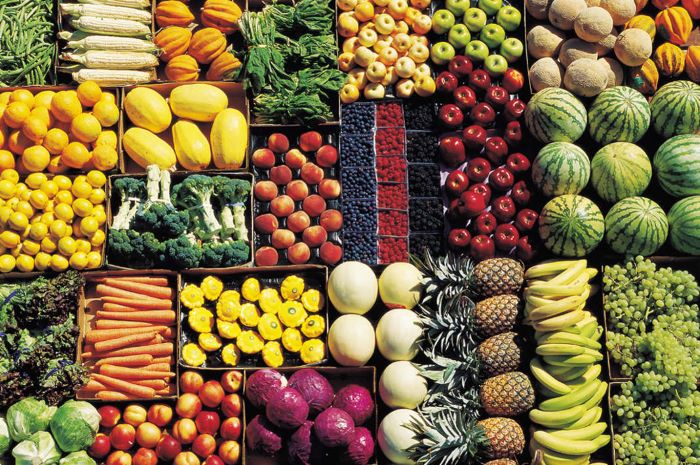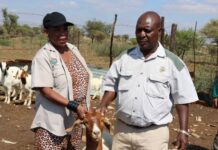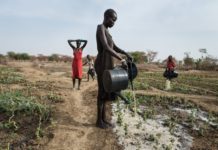Agribusiness plays a vital role in economic development, contributing a major portion of GDP, employment, and foreign exchange earnings in many developing countries. This is particularly true in Africa, where agriculture accounts for 25 percent of the continent’s GDP, and 70 percent of employment.
Despite its importance, Sub-Saharan Africa’s agribusiness sector faces numerous challenges. In many countries, most crops are produced by small-sized farms with limited mechanization and capacity, leading to poor yields. Fragmented markets, price controls, and poor infrastructure also hamper production. Many of the agricultural products produced in the region, such as maize, rice, and palm oil, are not competitive globally or have low profit margins. This means that Sub-Saharan Africa is ill-equipped to meet its food requirements, which are set to double in the next 30 years or even sooner.
However, this also leaves a chance for these avenues to be explored in terms of investments to realise the potential that is Agribusiness in Africa, as told from the perspective of Chris Isaac, the chief investment officer at AgDevCo
Promising markets
The first is tree crops, particularly avocados and macadamia. They are significant – and still growing – global demand for these crops, and if you can provide the right quality into the international supply chains, then it’s good business. There are some risks, as major new plantings are happening in Africa and around the world because prices are good at the moment. However, there are advantages to having export crops that bring in dollar revenue. Southern and East African countries have the possibility of being globally competitive because they can hit particular seasonal windows, they’ve got the right agro-ecological conditions, and you can build profitable new industries.
Another area is livestock for supply to domestic markets, which plays into Africa’s demographics with an emerging middle class, increasing affluence, and a switch towards more protein-based diets. We’re doing quite a lot in poultry, including some innovative work that provides improved breeds to small-scale farmers. We also have investments in pig breeding.
The third sub-sector would be high-quality, competitively-priced basic foodstuffs. African consumers will buy good quality, locally-produced products if you can come in at the right price point. We’re currently involved in maize meal processing and groundnuts. You can find success in this area if you can assure the consumer the food is safe and if it’s well-packaged and well-branded.
Grey areas.
You need to know what you’re doing if you are going into large-scale production of commodity crops – like maize, soya or rice. These are relatively low-margin commodities where there is global competition and significant economies of scale (especially if you look to South America or Asia), so you need to be sure that you can be an efficient producer and you’ve got the necessary scale. You are also sometimes dealing with unpredictable policy environments, where there may be intermittent export bans or changing tariff regimes, so primary production of low-value commodity crops is really difficult. It can make sense as part of a strategy where you’re vertically integrated and you’re also involved in the processing, but we’ve found it very challenging to make a success of doing straight primary production of those crops.
A similar challenge is if you move into, say, tomato processing or cassava starch – again, you’re taking on global suppliers who often benefit from subsidies, which makes it very difficult to get the cost of production below that of imports. It can be very tough to make those models work.
Effects of Covid-19 on Africa’s agribusiness industry.
So far, the agriculture sector in Africa seems to have weathered the storm reasonably well. As one of our non-executive directors, Sir Paul Collier, has said, we are operating in a situation of “radical uncertainty”, and so all you can do is try and design strategies that will be more or less robust regardless of the pandemic’s outcome.
Covid-19 has focused attention on the fact that the continent is a net importer of food products, which needs to be reversed. It accelerates the trend toward orientating businesses to cater for the growing demand in local and regional markets. That said, I don’t think it completely changes the game, and we’re not expecting a complete breakdown in international supply chains. You still have to focus on being internationally competitive and be able to deal with the fact that chicken can be imported from Brazil to southern Africa at very low cost and rice processing costs in Asia are a fraction of what they are in Africa.
African Agribusinesses need to tap into the global health and wellness trend by exporting organic products from Africa to Western markets. This is because there is value in full traceability back to the farmer who supplied the product and can be sure that banned chemicals haven’t been used, coupled with sustainable and equitable trade relationships with farmers.
Potential come-ups.
Malawi has a relatively small economy, but a history of commercial agriculture in tobacco, sugar, and to some extent tea, and an investment climate that is very good for agriculture. There’s also a strong overall supportive environment; Malawi has a solid legal system, it’s relatively painless dealing with the authorities, and you can get things done. We started investing there about eight years ago and have businesses in poultry, macadamia, sugar and peanuts that are all doing well.









